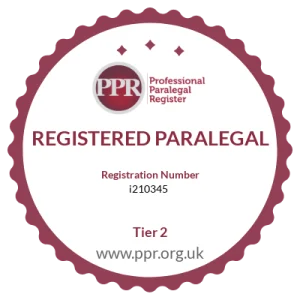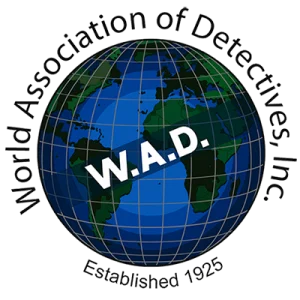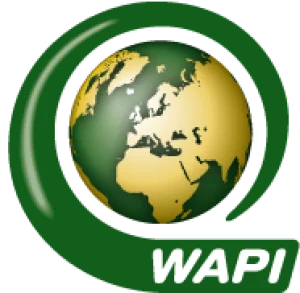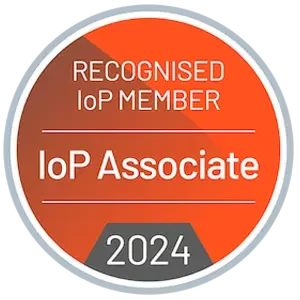When serving legal documents across borders, even seasoned lawyers can be caught off guard by the complexities of international service of process. While the Hague Service Convention was designed to simplify and standardize this procedure, in reality, each country still applies its own internal rules and interpretations. What’s valid service in one country may be rejected in another, resulting in wasted time, added costs, or worse—dismissed cases.
To ensure your international litigation or enforcement actions proceed smoothly, it’s critical to understand the country-specific rules that govern how service of process is executed abroad.
Understanding the Hague Service Convention
The Hague Service Convention of 1965 (formally, the Convention on the Service Abroad of Judicial and Extrajudicial Documents in Civil or Commercial Matters) provides a legal framework for serving documents between member countries.
Its purpose is to:
-
Ensure judicial documents are served efficiently across borders,
-
Protect defendants’ rights through proper notice, and
-
Simplify proof of service for international courts.
Under the Convention, each signatory country designates a Central Authority to receive and execute service requests. However, the Convention also allows alternative methods under Article 10, such as:
-
Service by mail,
-
Direct service through judicial officers or competent persons, and
-
Service through diplomatic or consular channels.
Yet, not all member countries accept these provisions. Many have made reservations or objections that significantly limit permissible service methods. This is where careful attention to detail becomes essential.
Why Country-Specific Rules Matter
Although the Hague Service Convention sets the overarching framework, each country has its own procedural requirements that can affect:
-
Whether translations are mandatory,
-
What service methods are permitted,
-
Which authorities are involved, and
-
How long the process takes.
Failure to comply with these domestic rules can lead to invalid service. For lawyers, that means potential case delays, denial of enforcement, or rejection of evidence in court.
Let’s explore key examples of how service rules vary across major jurisdictions.

France
France has one of the more rigid systems under the Convention.
-
Translation: Documents must be translated into French.
-
Permitted method: Only through the French Ministry of Justice (Central Authority).
-
Article 10 objection: France does not permit service by mail or private agents.
-
Processing time: Typically 3–6 months.
Any attempt to bypass the Central Authority—such as by courier or direct mail—can result in invalid service.

Germany
Germany’s system prioritizes formality and strict compliance.
-
Translation: All documents must be translated into German.
-
Article 10 objection: No postal or direct service permitted.
-
Authorized officer: Documents are served through judicial officers (Gerichtsvollzieher).
-
Processing time: Around 2–5 months.
Failure to translate or use the correct authority often results in outright rejection by German courts.

Japan
Japan adheres closely to its procedural structure.
-
Translation: Required in Japanese.
-
Channel: Only through the Ministry of Foreign Affairs (Central Authority).
-
Article 10 objection: No mail or direct service allowed.
-
Average time: 3–6 months.
Japanese officials carefully review every submission. Even minor errors—like inconsistent names or missing stamps—can delay processing.

India
India is a Hague member but maintains its own administrative process.
-
Translation: Not always required, but recommended for recipients who do not speak English.
-
Central Authority: Ministry of Law and Justice.
-
Article 10 objection: No postal or direct service.
-
Timeline: 6–12 months, sometimes longer.
For urgent civil or commercial cases, lawyers often rely on informal service through local process servers in parallel with formal Hague requests.

China
China applies one of the most restrictive interpretations of the Convention.
-
Translation: Mandatory into Simplified Chinese.
-
Service method: Only via the Ministry of Justice (Central Authority).
-
Article 10 objection: No mail or direct service.
-
Timeline: Often 8–12 months.
Documents must include addresses in Chinese characters, and improper formatting frequently leads to rejections.

Brazil
Although not a Hague member, Brazil is an important destination for international service.
-
Service mechanism: Letters Rogatory transmitted through the Ministry of Justice.
-
Translation: Into Portuguese, certified by a sworn translator.
-
Timeline: 6–12 months.
For business disputes, many parties use informal service via local legal representatives to ensure faster notification.

Mexico
Mexico’s process is slow but structured.
-
Translation: Required in Spanish.
-
Service channel: Through the Ministry of Foreign Affairs (Central Authority).
-
Article 10 objection: No mail or direct service.
-
Timeline: 4–8 months.
A missing apostille or incomplete address can lead to rejection by Mexican authorities.

South Korea
South Korea provides a clear process but requires full compliance.
-
Translation: Required in Korean.
-
Central Authority: Ministry of Justice.
-
Article 10 objection: Refused.
-
Timeline: 3–6 months.
The Seoul District Court generally issues the proof of service, which is recognized internationally.

Canada
Canada has a flexible, decentralized system.
-
Structure: Each province acts as its own Central Authority.
-
Article 10: Permitted — allows direct service and postal channels.
-
Translation: Only necessary for non-English/French recipients.
-
Timeline: 1–3 months.
Always verify the recipient’s province before sending the service request.

United Kingdom
The U.K. remains one of the easiest countries for international service.
-
Permitted methods: Allows direct service, postal channels, and service through solicitors or process servers.
-
Translation: Not required for English documents.
-
Timeline: 1–2 months.
Be mindful that England, Scotland, and Northern Ireland have separate judicial authorities and procedures.

Australia
Australia is efficient and open to multiple service methods.
-
Article 10: Permitted.
-
Translation: Only if the recipient cannot understand English.
-
Central Authority: Attorney-General’s Department.
-
Timeline: Usually 1–3 months.
Informal service by local agents is common and often accepted by courts.

Russia
Although a Hague member, Russia’s process is lengthy.
-
Translation: Into Russian.
-
Article 10 objection: No mail or direct service.
-
Central Authority: Ministry of Justice.
-
Timeline: 6–12 months or more.
Political tensions and administrative backlogs can cause unpredictable delays.

South Africa
South Africa’s system is relatively simple.
-
Article 10: Permitted.
-
Translation: English documents accepted; others must include translations.
-
Timeline: 2–4 months.
Both formal Hague channels and private service through local agents are valid options.

Türkiye
Turkey enforces strict compliance.
-
Translation: Into Turkish.
-
Article 10 objection: No mail or direct service.
-
Central Authority: Ministry of Justice.
-
Timeline: 4–6 months.
Always verify local court jurisdiction to avoid rejections.
Note on Country Coverage
While the countries listed above represent the most frequently encountered jurisdictions in international service of process, it’s important to understand that many other nations have their own unique requirements, reservations, and procedural nuances under the Hague Service Convention or other bilateral arrangements.
This article is intended as a practical reference guide—a handy overview for legal professionals navigating cross-border document service—not as an exhaustive compilation of every jurisdiction’s rule.
For specific or uncommon destinations, always review the latest declarations on the Hague Conference website or consult a professional service provider experienced in that region.
Non-Hague Countries to Note
For countries that have not acceded to the Hague Service Convention—such as Argentina, Vietnam, Thailand, and many Middle Eastern nations—service must be done through:
-
Diplomatic channels, or
-
Informal service by local professionals (when accepted by courts).
For instance:
-
United Arab Emirates: Not a Hague member but permits informal service through licensed agents.
-
Singapore: Hague member with strict procedural form requirements despite being efficient.
Always confirm local recognition before attempting any informal method.
Common Mistakes Lawyers Make
-
Ignoring translation requirements.
Courts often invalidate service if the recipient cannot understand the documents. -
Using prohibited methods.
Mailing documents directly to recipients in countries that object to Article 10 renders the service invalid. -
Failing to verify Central Authority addresses.
Submitting requests to the wrong authority causes months of delay. -
Skipping local legal assistance.
Working with an international process service company familiar with local laws can prevent rejections.
Practical Tips for Successful Service
-
Check membership status: Confirm whether the destination country is part of the Hague Service Convention.
-
Review declarations and objections: These determine which service methods are acceptable.
-
Prepare accurate translations: Use certified or sworn translators.
-
Include full addresses and local formats: Even formatting differences can result in rejection.
-
Document every step: Maintain clear proof of submission and service for admissibility in court.
-
Engage professionals: Partner with an experienced process service provider who knows the country’s procedural nuances.
Key Takeaways
International service of process is not a one-size-fits-all procedure. Even under the Hague Service Convention, each country has its own rules, languages, timelines, and legal sensitivities. Missteps can lead to rejected requests or dismissed cases—outcomes no lawyer wants for their client.
By understanding these country-specific nuances, you can ensure your service requests are properly executed, legally valid, and recognized abroad.
Consult Our Experts
At Stellar Konsulting, we specialize in international service of process under the Hague Service Convention and other legal frameworks. Our experts ensure that every document—no matter where it’s going—is served efficiently, lawfully, and with full compliance to local requirements.
If you’re a law firm, corporate counsel, or private litigant needing dependable international process service, contact us today.
Please call Stellar Konsulting at the phone numbers listed below or email us at operations@stellarkonsulting.com for an obligation-free quote covering the timelines, options and costs for international service of process.
📞 EMEA: +44 (20) 38905643
📞 USA: +1 (213) 786 1161
📞 Asia: +92 313-780-6280
📞 UK: +44 (20) 38905643
📞 Australia, New Zealand and Far East Asia: +61 2 7259 7299
Stellar Konsulting — Precise. Professional. Global.



















